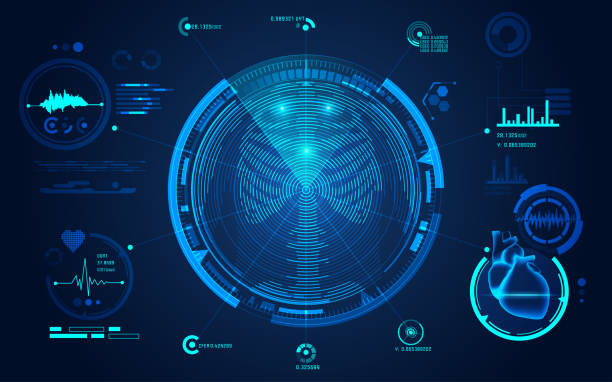Today, businesses are facing a number of challenges when it comes to conducting identity verification procedures. The most frequent ones are financial crimes, data breaches, reputational harm, minor exploitation, and identity theft. All of this is because criminals are becoming more technologically modern and are finding ways to get around the verification process by impersonating legitimate people. They easily avoid registration by using forged documents and login credentials. This is the reason that biometric screening is becoming more common.
It is a method of recognizing people by their distinctive qualities. The AI-driven biometric security system has the ability to verify users by scanning their digital signatures, facial features, and iris. Every industry is readily accepting this innovative technique. For example, the travel industry is utilizing a biometric passport to verify customers in less time and with greater accuracy. Consequently, industries can guarantee verification compliance and reduce the possibility of criminal activity.
Traditional Verification vs. Biometric Recognition System
In a digital setting, biometric user authentication provides higher accuracy in identity verification than other methods such as passwords and usernames. Biometric screening is a secure and convenient method of verifying customer identities during digital onboarding. In comparison to other methods of identification, this technique is much more secure, robust, and reliable. Traditional verification services frequently provide less security and more problems.
For instance, customers often forget their usernames and passwords for social media sites, which is considered low security. Knowledge-based questions, on the other hand, provide marginally better security but can be burdensome and difficult for customers to remember. Biometrics are difficult to duplicate, forge, or steal because they are personal to the individual. Additionally, they are simple for customers to use and cannot be lost or forgotten.
Top 6 Benefits of Biometric Screening
The biometric security system facilitates quick and simple identification, but it also offers the following benefits:
-
Faster Authentication
In the past, companies used the “pen and paper” technique, which required employees to sign in by signing an “attendance sheet” after arriving at work. The manual process would take a long time, whereas the biometric screening system removes the need for physical attendance. Employees can simply sign in using a facial or retinal scanner to mark their attendance.
-
Enhanced Security
Some people find it challenging to remember security codes, passwords, and pins. Biometric recognition ends the requirement of remembering passwords. There are several modes available, including face, voice, or retinal recognition. The system can also be used to safeguard sensitive information because facial expressions can’t be faked, unlike passwords and pins.
-
Increases Convenience
The biometric security system is a practical way to keep track of every employee in an organization. It provides accurate information about sign-in and sign-out times. HR officers are no longer required to sift through stacks of attendance sheets to track late sign-ins and calculate leaves or overtime for single employees. Biometric ID helps in the digital onboarding process and allows companies to hire people from all over the world. This automated, AI-powered system can gather all the data automatically.
-
Higher Scalability
The biometric recognition system is a one-per-organization arrangement. This can be applied to multiple aspects of a company, such as a special project or a new department. It is currently the most adaptable security system for both large and small businesses. According to Shufti Pro Funding, banks are investing money on low-cost biometric apps so that customers can sign in using the facial expressions on their smartphones.
-
More Flexibility
The biometric screening gives users the freedom to use physical characteristics rather than having to memorize pins or passwords. Nowadays, many developed countries provide the facility of biometric ID card. This gives citizens the comfort of not going anywhere for the verification of identity documents. According to Shufti Pro News, many apps are providing facial recognition, which enables users to protect their data from unintentional theft.
-
Full Data Accuracy
A company’s biometric data is entirely accurate and trustworthy. The biometric security system restricts access to authorized officials while keeping intruders out. This method ensures data security once a physical feature is logged onto the system by limiting external access.
Conclusion
The global spread of business crimes is accelerating. A company suffers severe harm from fraud, which can strike from anywhere. Types of fraud include identity theft, document fraud, and the use of fake information to obtain any kind of benefit. Effective modern techniques are necessary to prevent these crimes. Biometric screening is a robust method for identifying a person. It uses physical traits like a person’s walk or distinctive facial patterns. Almost every industry employs biometric technology today. This is reliable, efficient, time-saving, and hard to hack.

